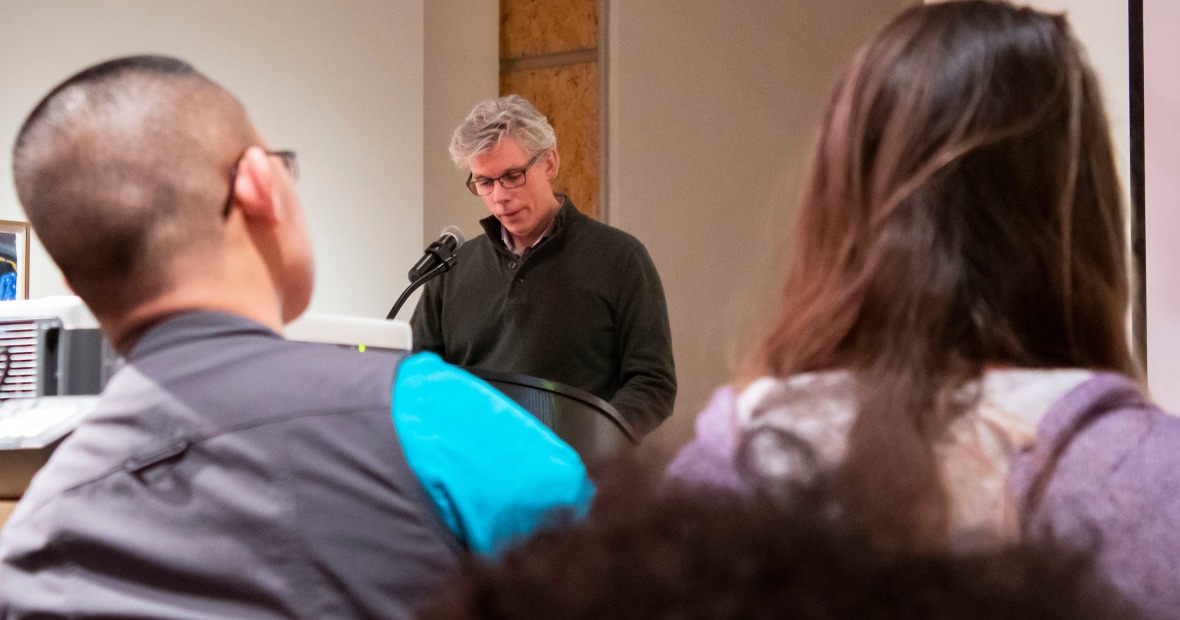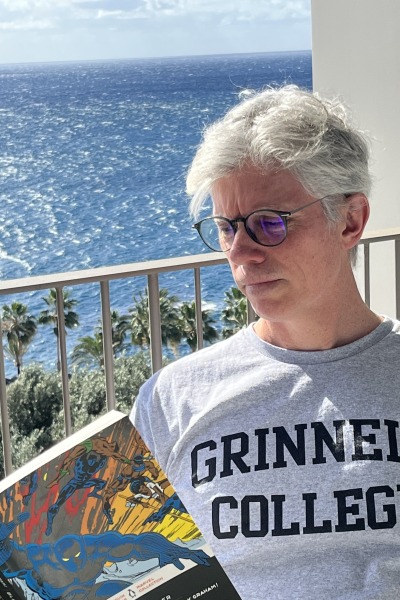5 Questions with John Garrison
While it’s expected that a professor of English can discuss the finer points of Shakespeare, it’s not always a given that they can do so in a manner that is easily understood and engenders excitement and interest. Grinnell’s John Garrison is one of those who can — and does. His ability to clearly express the subtlety, nuance, and brilliance of the Bard can inspire even the uninitiated to grab a copy of Hamlet and dive in. Currently on sabbatical in Porto, Portugal, Garrison is completing research related to his forthcoming book The Pleasures of Memory in Shakespeare's Sonnets with support from fellowships from the Guggenheim Foundation, the National Endowment for the Humanities, and the Renaissance Society of America. He’ll return for short visit to deliver the ninth annual Grinnell Lecture on Feb. 23. His lecture, "It Takes a Long Time to Sound Like Yourself: Contemporary Writing in the Shadow of Shakespeare," will provide insights into his own research and into the work that students do to engage major thinkers from the academic canon. Despite his extensive schedule of research work, lecture preparation, and basking in the balmy Portuguese weather, Garrison took time to answer a few questions about his work and the passion for comic books that helped inspire it.
Q: How were you first introduced to comic books?
A: I think I started reading them in 7th or 8th grade. I've always liked the books about teams, mostly the Fantastic Four and X-Men, but I also wanted to be like Black Panther and Daredevil. They were superheroes mostly by relying on good thinking and also knowing martial arts, another passion of mine growing up.
Q: How did comics inspire your career as a writer?
A: Comic books helped me learn a lot about storytelling, and really every book I write has a story to tell. In fact, one of my recent books was inspired by a Fantastic Four issue that I must have read when I was 15 or 16. The issue begins with a quote from the 19th-century philosopher Arthur Schopenhauer that I've never forgotten: "Every parting gives us a foretaste of death, and every reunion a hint of the resurrection." It always stuck with me, and it ended up being the inspiration for my recent book Shakespeare and the Afterlife.
Q: Isn't it kind of a jump from comics to Shakespeare?
A: Yes and no. Shakespeare's plays and poems were the popular culture of his age. But it's also true that Shakespeare gets quoted a lot in comics. And he even appears as a character in a few of Neil Gaiman's Sandman comics. I taught those in my most recent "Introduction to Shakespeare" course at Newton Correctional Facility. We had a great time thinking about how Shakespeare's plays are like superhero narratives.
Q: Is there a dream-team of Shakespearean heroes?
A: I love this question! This is an activity I do once in a while in class: asking students to assemble their ideal super team from the characters we've encountered. It's a lot of fun, but it also helps us think about how, on a team, you need lots of different perspectives and abilities.
Q: So ... who does a better job with the movie versions: Marvel or DC?
A: I'm actually much more into the animated series on television. I love Young Justice, which features the younger DC heroes who come from all walks of life — non-binary, Muslim, queer ... all kinds of folks — and who are learning to relate to themselves, to each other, and to the world they want to make better.


